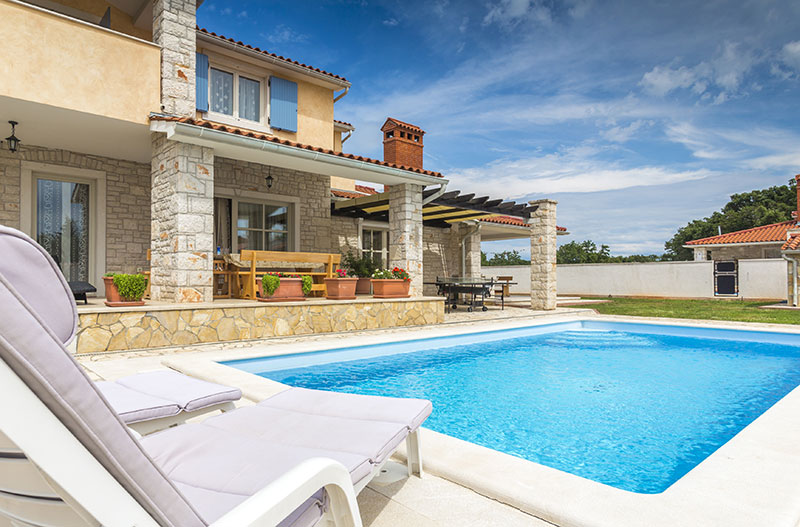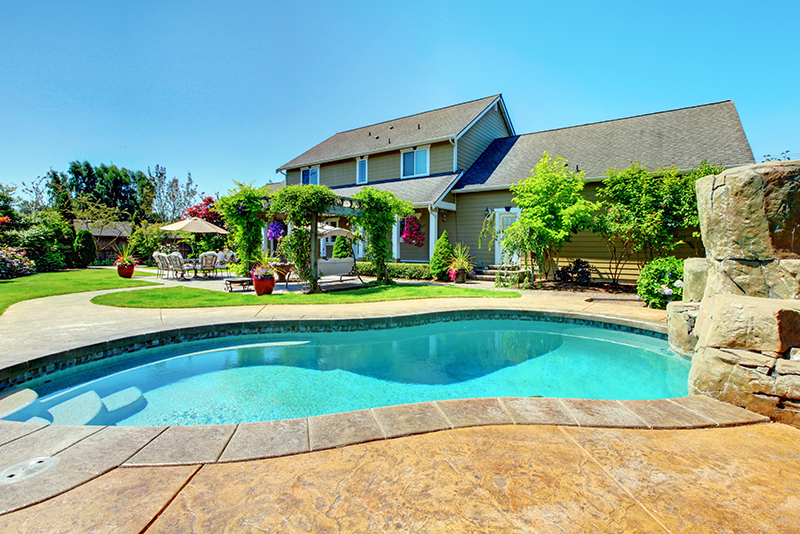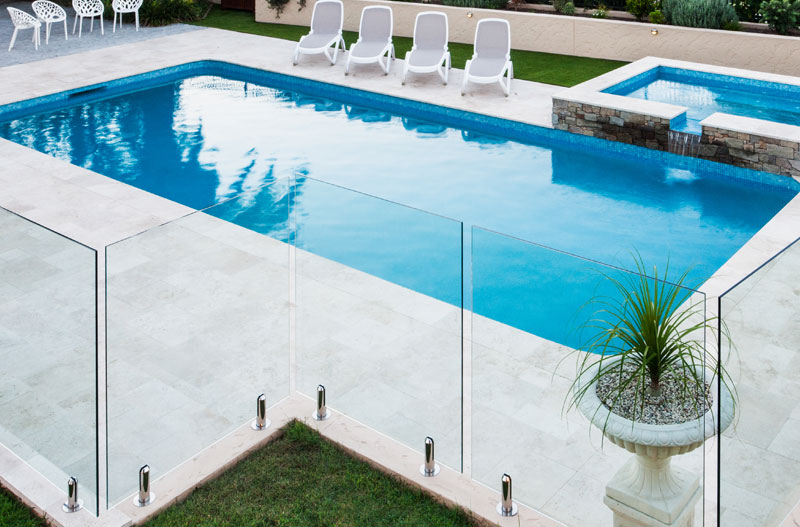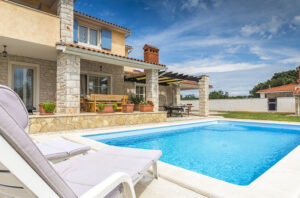If you are undecided on what type of pool best suits your needs, there are a few basics you should consider.
The three types of inground pools, fibreglass, vinyl lined and concrete, each have distinct pros and cons. One type has emerged as a clear favourite, but you may have specific needs which could swing your decision.
Fibreglass Pools
Fibreglass pool advantages
Low Maintenance. Perhaps the outstanding feature of this pool type is that it is made from a virtually nonporous, inert material. Porosity is the single most significant factor affecting pool maintenance.
Algae can find no purchase on a smooth surface compared to concrete, where cavities present plenty of opportunities for algae to colonise the surface. Low porosity means chemicals do not need to penetrate the surface to be effective, resulting in better algae control and lower chemical consumption.
Fibreglass pools do not require frequent surface scrubbing, as is the case for concrete pools, to prevent algae buildup. Being inert, a fibreglass surface makes it easier to maintain stable PH (water acidity), which is vital in optimising the effectiveness of chlorine. By comparison, concrete constantly adds alkalinity to the water, making it much harder to maintain stable water chemistry. Maintenance costs in time and money for fibreglass pools are approximately 70% lower than other pool types.
Ease of Installation
Fibreglass pool shells are manufactured offsite. Installation is a matter of placing the shell in a pre-dug hole, bedding it in and completing paving and any accessories. Installation typically takes about 3 to 4 days.
Durability
Fibreglass is strong and durable, so the pool surface cannot be damaged by sharp foreign objects inadvertently ending up in the pool and damaging vinyl linings. Fibreglass pools can last as long as your home. Relining an existing pool with fibreglass has become a popular option to benefit from lower maintenance costs and higher durability.
Attractive Looks
Fibreglass comes in various colours with attractive features like lights, ceramic tiles and tanning ledges easily incorporated into the design. Your house resale value will be enhanced by a low-maintenance pool, durable and attractive pool.
Disadvantages of fibreglass pools
Fibreglass pools cost a bit more to install than vinyl-lined pools and significantly less than concrete pools. The overall cost of ownership is far lower than other pool types in the long run.
Fibreglass pools come in specific set shell designs. So, you may need some help finding a shape that suits your needs.
Marbelite Pools

Advantages
A marbelite pool’s most significant benefit is its ability to shape into more intricate shapes than other pool types. In addition, marbelite pools are strong and durable, although they will not last as long as fibreglass.
Disadvantages
The most significant disadvantage is the cost of installation and maintenance.
Vinyl Lined Pools

Advantages
Vinyl-lined pools have the lowest initial cost. They are also more customisable than fibreglass pools.
Disadvantages
The liner needs to be replaced approximately every ten years. Although smooth in texture, the lining can have small folds where steps and other accessories are attached that could harbour algae growth.
Sharp objects can puncture vinyl in unusual circumstances, which poses an additional risk with this pool type.



Please call me regarding pool renovations